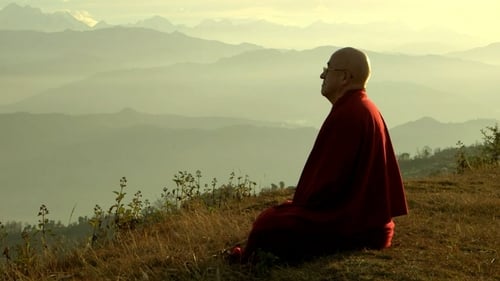
Editor
Tobacco, climate change, pesticides,... Never has scientific knowledge seemed so vast, detailed and shared. And yet it appears to be increasingly challenged. It is no longer surprising to see private corporations put strategies in place to confuse the public debate and paralyze political decision-making. Overwhelmed by excess of information, how can we, as citizens, sort out fact from fiction? One by one, this film dismantles the workings of this clever manoeuvre that aims to turn science against itself. Thanks to declassified archives, graphic animations and testimonies from experts, lobbyists and politicians, this investigation plunges us into the science of doubt. Along with a team of experts (philosophers, economists, cognitive scientists, political men, or even agnotologists), we explore concrete examples of doubt making and try to understand the whole process and the issues behind it.

Editor
As obesity progresses inexorably, Sylvie Gilman and Thierry de Lestrade investigate the causes of this planetary plague and reveal the fight waged in certain countries to stem it.

Editor
Hidden deep in our guts, billion bacteria keep us healthy. Although invisible to the naked eye, they could revolutionise the future of medicine. This might happen, if they don't disappear because of our modern lifestyle.

Editor
For generations, we have believed that man is driven by ruthless self-interest. But over the past decade, this idea has been increasingly challenged. New research from fields as diverse as political science, psychology, sociology and experimental economics is forcing us to rethink human actions and motivation. ‘The Altruism Revolution’ examines the scientific reasons behind the call for a more caring society.

Editor
While life expectancy is increasing in Western countries, cases of diabetes, hypertension, obesity and cancer are increasing, and the use of medication has exploded. Does this mean that in order to live to a ripe age we are condemned to swallow more and more drugs? What if there was another way? For half a century, in Russia, Germany and the U.S., doctors and biologists have been exploring a different therapeutic approach: fasting. The results are amazing. Soviet researchers have provided a body of clinical studies of exceptional health…only published in Russian, and thus unknown in the West. Young biologists from the University of Los Angeles have overturned conventional wisdom and used molecular biology to demonstrate the powerful effects of fasting. This research suggests a wide-ranging potential, which could include treatments for the disease of the century, cancer. If these scientists are right, maybe our approach to disease and treatment will need a rethink.

Editor
Spared by cancer, diabetes and possibly Alzheimer’s, men and women of small stature are intriguing scientists that are trying to postpone age-related illnesses.
What mechanisms protect these small Ecuadorian from certain illnesses? From Quito to Los Angeles, via Tel-Aviv, the film follows the revolutionary research, step-by-step, that is attempting to understand and prevent diseases such as cancer. And outlines ways to live in good health… for as long as possible.

Editor
In the Philippines, the reefs, coasts and islets of the island of Palawan, the Straits of Balabak and the Sula Sea are amongst the richest in biodiversity on Earth. Some scientists claim that the entire submarine wildlife of the Pacific originated from this area. The coral is magnificent and the protected sites offer an incomparable vision of marine life to scuba divers from all over the world. However, since the end of the Second World War, Philippine fishermen have been fishing with dynamite all over the coral reefs of this marine Wild West. Today, far from diminishing, this form of fishing has taken on industrial dimensions and 50% of the coral has been destroyed, turning this underwater Eden into arid desert…






